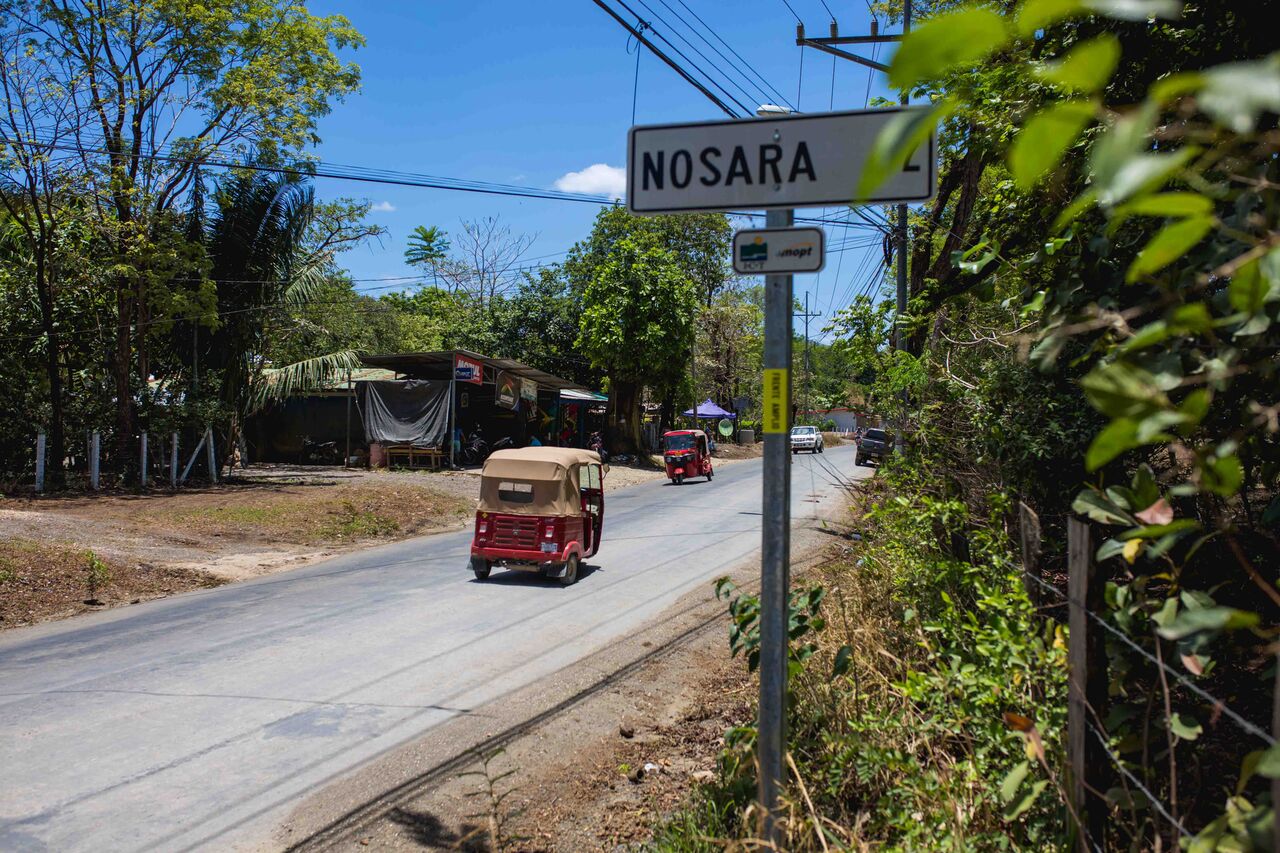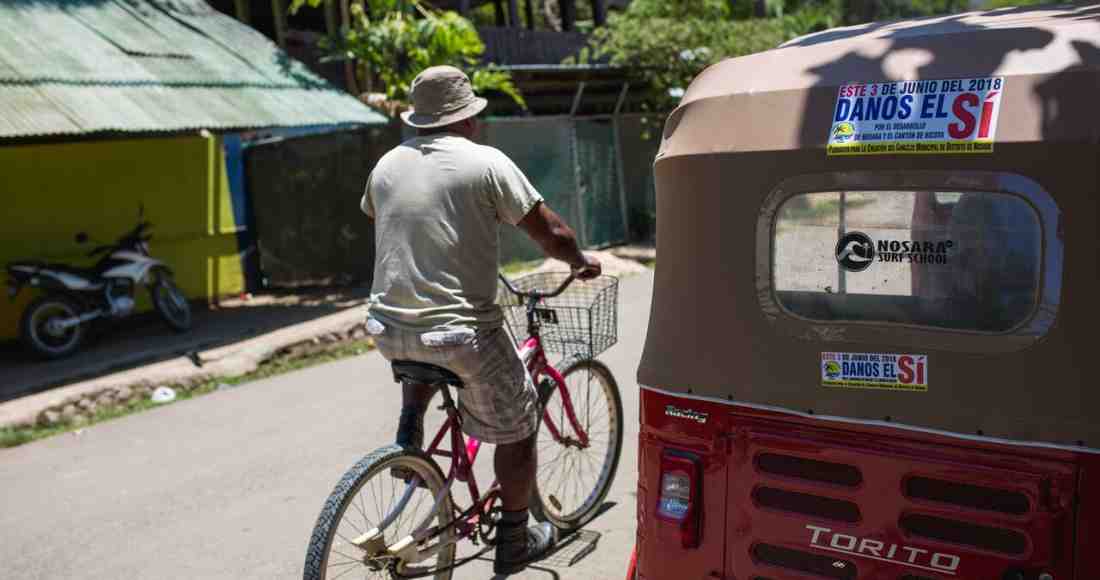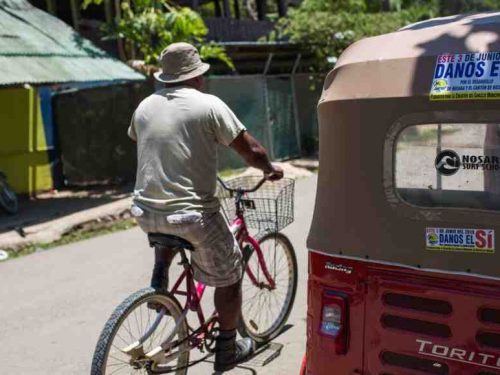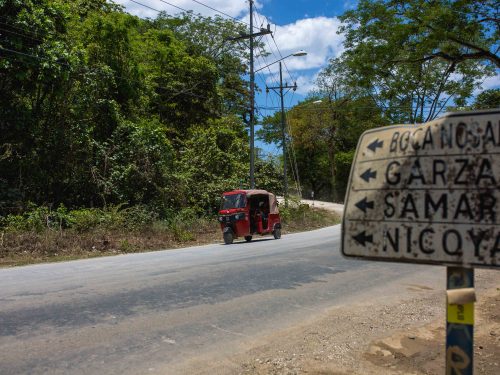
On June 3, Nicoyans will vote on whether or not they agree with Nosara becoming administratively independent of Nicoya city hall. But what are the implications of this decision?
Will Nicoya Suffer for Revenue?
If “yes” wins in favor of Nosara’s administrative independence, the new municipal district council (CMD) would receive all the money from fines, patents, businesses, construction permits or any other tax that district generates.
In other words, the money collected would no longer enter the coffers of Nicoya city hall as is the case right now. It would stay in Nosara in order to pay for the district’s needs.
How much money are we talking about? According to Nicoya city hall there is no official document indicating how much money Nosara contributes to the canton, nor is there a study that measures the economic impact that the municipality will suffer if “yes” wins the plebiscite.
“We don’t have an estimate of how much would be lost because, in the budget, we only have one single amount for the canton. It’s not separated by district,” said Deisy Marín, Nicoya city hall budget manager. “It would be impossible to give a figure.”
Mario Loría, a former city councilman who favors the “yes” vote, said that Nosara contributes ¢700 million ($1.2 million) annually to the canton. According to him, that number comes from the accounting department at Nicoya city hall.
In 2017, Nosara contributed just over ¢57 million ($101,000) for construction permits alone, accounting for 47 percent of the total received by Nicoya for construction, according to a city document obtained by The Voice of Guanacaste.
For the “yes” camp, the district isn’t compensated for the money it contributes.
“What Nosara contributes is diluted among the needs of the whole canton and we only ever see 20 percent of that money,” Loria said.
A 2013 study done by the Center for Responsible Tourism (CREST) revealed that the average resident in Nosara or Sámara pays between five and six times more in property taxes than those who live in other parts of Nicoya.
For the “no” camp, the concern is that, save for the central district, Nosara stands out as the main revenue stream for Nicoya.
“The municipality uses a system of economic distribution based on social solidarity among the districts of Nicoya,” said Edwin Castillo, a former mayoral candidate in the 2016 elections and president of the “no” movement. “This project entails letting resources be distributed solely in Nosara.”
So, how would Nicoya recover the money that it would lose?
In general terms, Nicoya has at least three potential options (or combining all of them). The first would be proposing and carrying out new projects that inject capital into the city. One example is installing parking meters and charging for parking in downtown Nicoya.
The second option, which is in accordance with the General Municipal District Council Law, is that the new CMD could negotiate with Nicoya on whether or not to pay them a percentage of the money the entity collects.
Finally, Nicoya city hall could improve efficiency and commit itself to reducing the amount of outstanding payments it is owed.
Absolute independence?
If Nosara is to have one thing clear ahead of the upcoming vote, it’s that the CMD won’t have absolute independence from Nicoya City Hall.
Luis Eduardo Araya, legal advisor for the national union of local governments, explained that the budget for Nosara that the council must present ever year must be sent to Nicoya city hall, which will in turn send it to the Comptroller’s Office for approval.
“The CMD can’t deal directly with the Comptroller. In the case Nicoya falls behind in sending its budget for approval, this would also delay the approval of Nosara’s budget,” Araya said.
Nicoya city hall, however, would not be able to meddle in that budget and would only act as a link between the Comptroller’s Office and the municipal district council.
The law also establishes that the CMD must present reports that city hall considers necessary.

Almost a town
If “yes” wins the plebiscite, the resources that the Nosara municipal district council receives will have to cover all its administrative responsibilities, such as salaries for officials that are hired, rent for the building that they work from and the council, for example.
At the moment, though, there is no study showing how much this will all cost. In other words, there is no certainty on how much of the revenues that are currently collected will be allocated for the council to function. It is also not clear what the earnings will be for Nosarans to carry out their projects.
“We don’t have an estimate of how much the administrative functions will cost, but we have two years from the date of the plebiscite to organize that,” said Mario Loria of the “yes” camp. “If Nosara comes out successful, it would immediately enter the planning process.”
In the next municipal elections, Nosarans will elect the five members of their municipal council, including its administrator. They would have the same functions as city council members and mayor, respectively.
What would Nosara prioritize?
According to Loría, the top priority for Nosara residents is improving the 133 kilometers of road in the district, especially because of the dust that it generates which provokes a series of respiratory problems among residents.
Another one of Nosara’s biggest concerns is trash collection. “We have thousands of tons of trash inside the aquifer because there is no trash collection service, nor treatment grounds,” Loria added.
According to the “yes” movement, it they win they would look for a way to build a sports center and promote education programs with the National Learning Institute (INA).







Comments